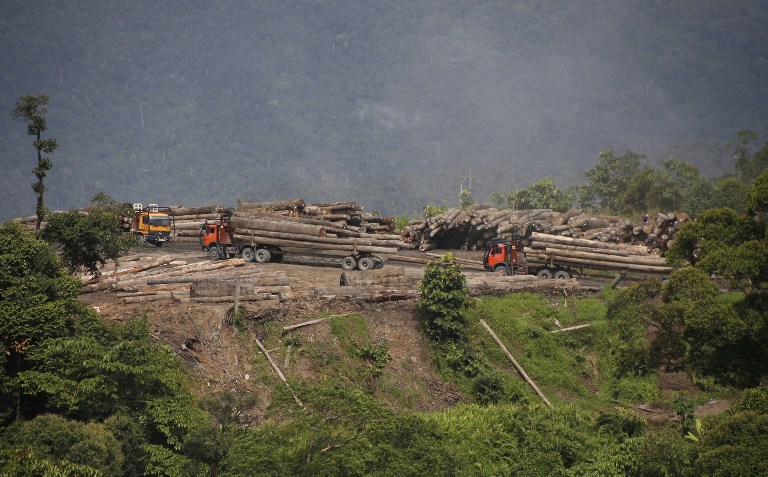KUALA LUMPUR, Jan 14 — Sarawak’s fast-disappearing forests are prompting its timber barons to replicate the framework of corruption allegedly used in the state’s logging industry in other countries, an environmental activist has claimed.
Lukas Straumann, director of Swiss environmental group Bruno Manser Fund (BMF), told National Geographic that businessmen have bribed Sarawakian politicians since the 1960s for timber concessions, which in turn allowed the latter to stay in power.
“This model, which linked corruption, destruction of the environment, and disrespect for indigenous rights, was so successful that Malaysia's timber barons sought to export it,” Straumann was quoted saying in a National Geographic report published Sunday.
“First, the rapid depletion of the rain forest in Sarawak meant they couldn't ‘grow’ it there. It was also risky to depend on one despot,” he added.
Sarawak governor Tun Abdul Taib Mahmud, who stepped down as chief minister last year after ruling the state for over three decades, has been under investigation by the Malaysian Anti-Corruption Commission (MACC) since 2011.
Straumann said Malaysian timber barons have since taken off to countries with very weak governance such as post-civil war Cambodia, Papua New Guinea, Guyana in South America, and western Africa.
“Today they're among the largest suppliers of mainland China with tropical timbers from western Africa. So Sarawak became the breeding ground for a model that has proved destructive not only in Borneo but everywhere there are tropical forests,” he told National Geographic.
In 2011, environmentalist website Mongabay.com reported BMF as saying that Sarawak has lost up to 95 per cent of its forest based on satellite imagery.
Malaysia’s rate of deforestation is reportedly the highest in the world as almost 15 per cent have been cut down in just three years up to 2012, according to Mongabay.com.
Former British Prime Minister Gordon Brown wrote in UK paper The Independent in 2011 that Sarawak’s deforestation was “probably the biggest environmental crime of our times”.
Straumann also claimed that Taib and his family still maintained a “stranglehold” on the state’s economy and alleged that they have made billions.
“They have stakes in over 400 companies in 25 countries, as well as having investments in Western countries like the US, Canada, the UK, and Australia,” said Straumann.
The activist told National Geographic that a whistleblower had given him secret files from Sarawak’s Land and Survey Department which allegedly showed the former chief minister giving large tracts of state land to his family, who later sold them at a higher price.
“That was crucial, because all transactions of state land are among the best guarded secrets in states like Sarawak, where top politicians make their money from privatising public resources into the hands of their families and cronies,” Straumann said.
Straumann further accused multinational banks of playing a role in Sarawak’s deforestation, naming HSBC and Macquarie in Australia, American bank Goldman Sachs, European bank Deutsche Bank and Swiss bank UBS.
He said a criminal investigation has been opened in Switzerland after BMF filed a complaint against UBS for allegedly accepting up to US$90 million (RM320 million) in illicit payments linked to Borneo’s timber trade.
Swiss-based BMF was set up by environmental activist and anti-Taib campaigner Bruno Manser, who disappeared in 2000 in Kalimantan and is presumed dead.



















